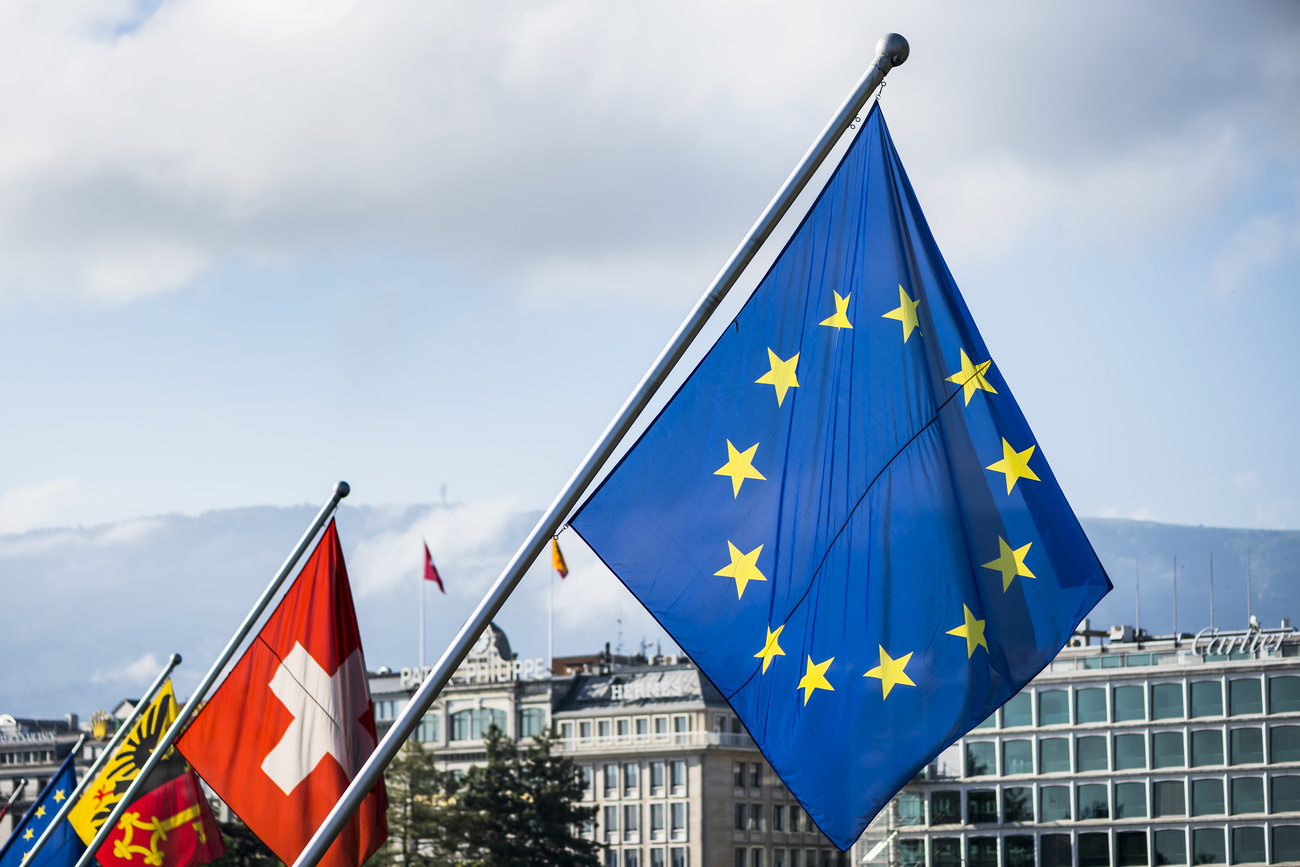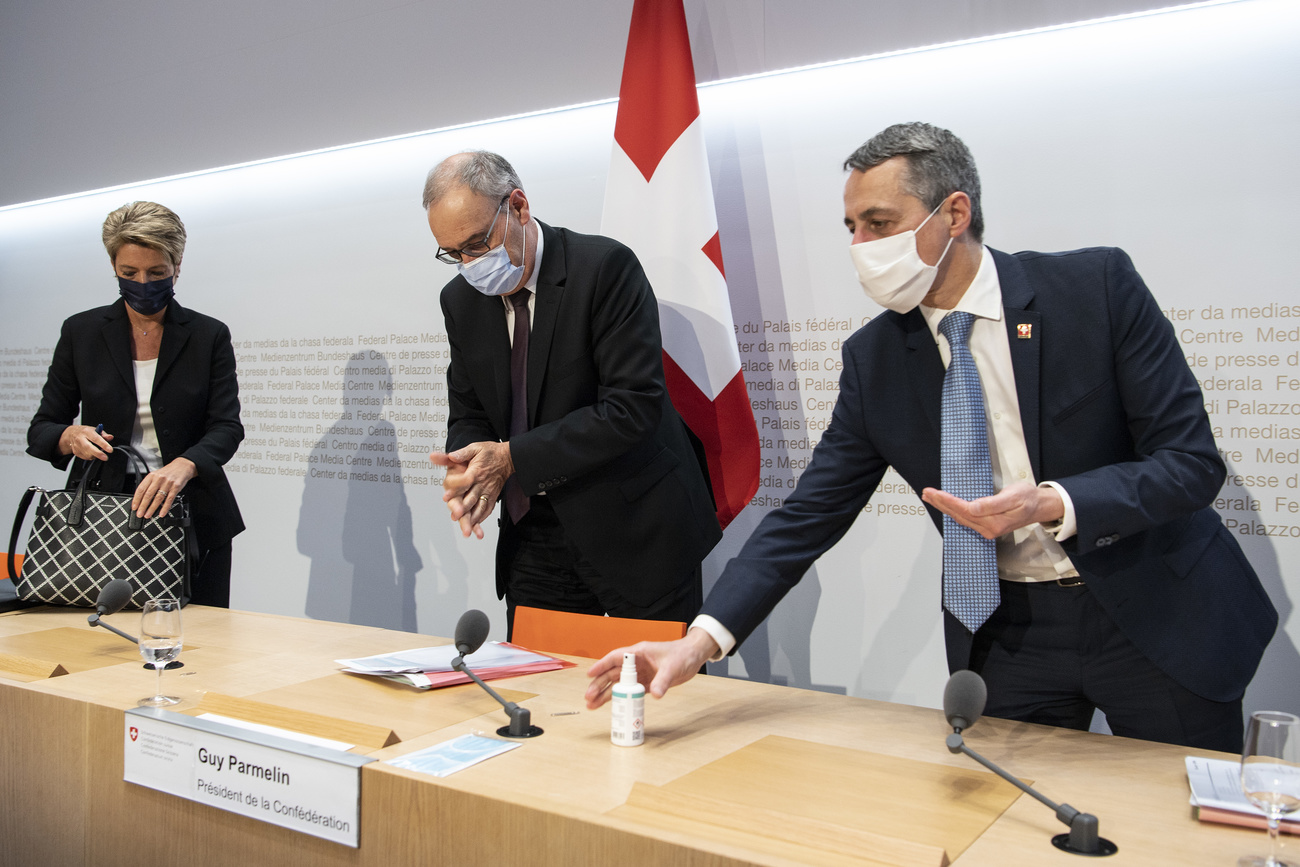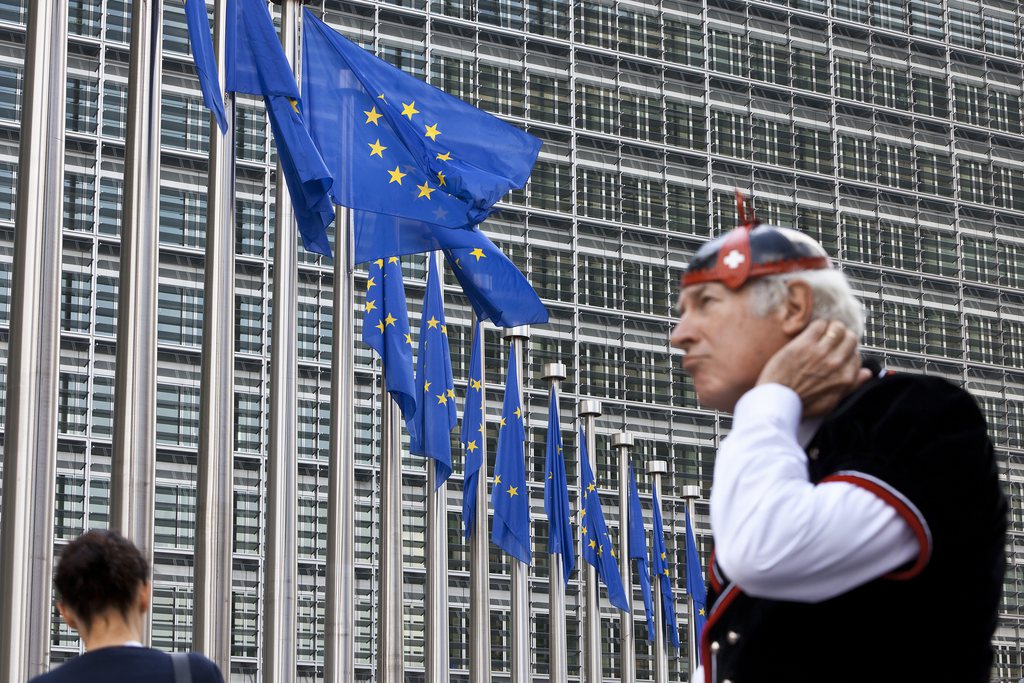Swiss unis fear for research after EU deal breakdown

Swiss universities say that the government’s decision to drop the institutional agreement on relations with the European Union puts Switzerland’s top research position at risk.
In particular, they fear the consequences for Swiss participation in the EU’s key Horizon Europe research programmes and the Erasmus+ student exchange scheme.
The Federal Council's No to the Framework Agreement marks another period of uncertainty in Switzerland's relations with the EU. This also applies to the universities. https://t.co/hjw4Py4IjDExternal link
— swissuniversities (@CH_universities) May 26, 2021External link
Yves Flückiger, University of Geneva rector and president of swissuniversities, the sector’s umbrella body, tweeted that the decision was “unfortunately not a surprise, but still a big disappointment. I am very worried about the future of Swiss science community”.
Es ist leider keine Überraschung, aber eine große Enttäuschung. Ich bin sehr besorgt über die Zukunft der Schweizer Wissenschaftsgemeinschaft @CH_universitiesExternal link @UNIGEnewsExternal link https://t.co/vzRRAuCBm5External link
— Flückiger Yves (@FlueckigerYves) May 26, 2021External link
The government’s announcement on Wednesday marks the end of years of negotiations towards a “framework” treaty to regulate long-term ties between non-EU Switzerland and Brussels.

More
Swiss reject framework agreement deal with EU
Exclusion?
Universities fear that these latest tensions could lead to Switzerland being once again barred from EU research programmes, as happened in 2014 after the controversial Swiss vote to re-introduce immigration quotas for EU citizens.
This ban was later loosened and the Swiss were included in Horizon 2020 (the previous programme to Horizon Europe), but the country is still excluded from the Erasmus+ exchange programme.
Over the coming months, the course will be set for Swiss participation in the next stage of Horizon, said swissuniversities in a statementExternal link.
Horizon Europe (2021-2027), which is normally subject to separate negotiations to the framework agreement, has a budget of €95.5 billion (CHF105 billion). As we have previously reported, EU framework programme funding is the second-largest source of public funding for Swiss researchers after the Swiss National Science Foundation.
“The EU has clearly signalled that it considers a framework agreement to be a prerequisite for Switzerland’s participation. Swiss research will lose what was previously equal access to the most important international research network,” cautioned swissuniversities.
It is not yet known how exactly the breakdown of the framework deal will affect the negotiations on Horizon Europe. This has been confirmed by education officials.
Top-ranking research area
Swissuniversities added that international cooperation was key. “In the future, Switzerland risks a weakening of its attractiveness and competitiveness and thus the loss of its top international position in research,” it said.
Switzerland is home to several top-ranking universities, most notably the two federal institutes of technology in Lausanne and Zurich. It is also among the higher-spending countries for R&D in relation to GDP (3.15% of GDP in 2019, according to official statistics.)
Swissuniversities’ Flückiger told Le TempsExternal link newspaper that contacts would be made over the next weeks to avoid Swiss researchers being blocked from important EU quantum and space research projects.
International mobility fears
Over the past months, higher education bodies have been lobbying the government over its position on Horizon Europe and Erasmus+.
Last September the Swiss Student UnionExternal link handed in a petition with more than 10,000 signatures calling on the government to start immediate negotiations to rejoin Erasmus+.
The government’s dropping of the EU deal on Wednesday means that “a full association in Erasmus+ in the foreseeable future has been greatly diminished,” the union told SWI swissinfo.ch in a written statement.
“In the long term, this is problematic for Switzerland as an education location and means that the mobility of Swiss students and young people in particular will fall compared with neighbouring countries,” it continued.
Both swissuniversities and the Swiss Student Union are calling on the government to clarify, its position on Horizon Europe and Erasmus+.
So far, the government has indicatedExternal link that it hopes that existing agreements between Bern and Brussels would continue to be updated in the wake of Wednesday’s decision and that “no undue political links” would be established in “other matters” such as research cooperation.

In compliance with the JTI standards
More: SWI swissinfo.ch certified by the Journalism Trust Initiative















You can find an overview of ongoing debates with our journalists here . Please join us!
If you want to start a conversation about a topic raised in this article or want to report factual errors, email us at english@swissinfo.ch.